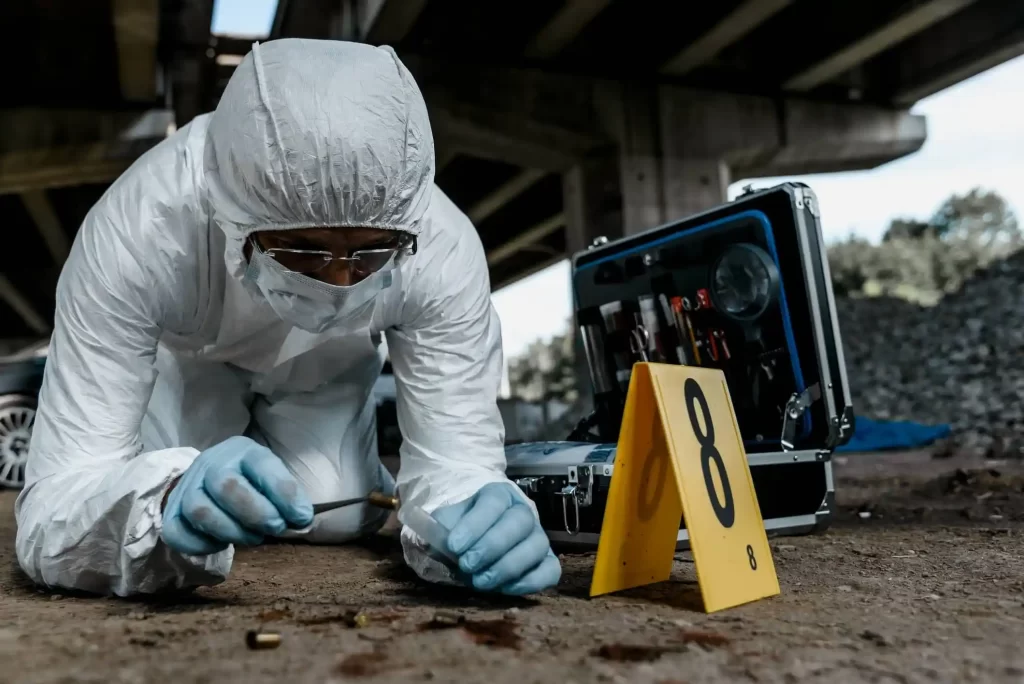DNA introduction as crucial evidence was spurned by American courts for a long time, but slowly, the evidence came to be accepted as a silver bullet. But now, new evidence of DNA tampering by analysts is raising genuine fears about the reliability of the applications of DNA in determining a guilty verdict. We will peek at what is at stake and venture into whether there is a middle level where the efficacy of DNA is disputed.
Who will forget the OJ Simpson case? It was in this criminal case in Los Angeles that DNA was blitzed to stratospheric levels. OJ Simpson was a famous American footballer who was accused of a double murder of his ex-wife and her boyfriend in allegedly a crime of passion. We still remember the way O.J. Simpson was fleeing from the police who were in a motorcade chase. He later surrendered and was arraigned in court but was acquitted due to DNA tampering.
It was the way the DNA was collected, sampled, and analyzed and O.J.’s inability to fit his fist in the glare of TV cameras in a supposed murderer’s glove that the prosecution case lost its punch as serious doubt settled. Many still believe O.J. Simpson cheated the law and is a murderer gone loose. No wonder when he was indicted and sentenced to a lengthy sentence for breaking into a shop to steal his memorabilia, many believed justice for his ex-wife Nicole and her lover, who were murdered, was served!
Read related: Justice for Billionaire Msuya’s Sister: Why Antudia Msuya’s Distress Over Acquittal of Suspects.
The most recent article from the Wall Street Journal features Colorado Star DNA analyst Yvonne “Missy” Woods, who had an impeccable record in appraising DNA samples. Still, new information claims she is not what many thought she was.
In her specific situation, she is being investigated for intentionally manipulating the DNA samples to portray misleading results affecting at least 652 criminal cases from 2008 to 2033, almost 25 years of work. The investigators do not accuse her of falsifying the DNA results but of skewing them, which looks like an omission of the sampled DNA rather than a replacement or attaching a contrarian meaning to it.
The full implications of the alleged distortions remain unclear as more than 3,000 DNA samples will be reviewed to establish the facts. Yvonne “Missy” Woods has resigned following the revelations.
Back home, DNA has been controversial for a good reason. In criminal cases, the application of DNA has been rare and far between. Most criminal cases are settled upon admissions or collaborated evidence, such as eye witnesses or circumstantial evidence.
It is in paternity cases where the application of DNA has been gaining some traction, albeit drawing plenty of doubting Thomases. For instance, in disputed paternity cases, it is not uncommon for a defence of cooked results to be raised. In such scenarios, the doubters mistrust our labs and urge the litigants to seek impartial DNA results from foreign soils, mostly Dubai or South Africa.
What the parties are saying in private is that their assailants have bought the DNA results and were parlaying them to demand huge sums of money as child support.
In criminal cases, the efficacy of results is a work in progress. Cases where DNA is plenteous and is not utilized are common. In rare cases where the assault is left behind, a sizeable test is rarely applied to place a suspect at the crime scene. Cases of oozing semen, for example, are not resolved but by oral evidence, which may have been coached or rehearsed to secure a guilty verdict.
How Can Compromised DNA Be Dealt With?
Human DNA plays a crucial role in inheritance, providing instructions for growth, development, and reproduction. The Human DNA Act of 2009 in Tanzania governs the collection and analysis of human DNA samples. These samples serve various purposes, including establishing parentage, aiding criminal investigations, and supporting research in genetics and medicine.
In sports, where defence in doping cases indicates flawed samples, a retake of the samples by new labs to ensure impartiality is normally observed. In Tanzania, we are yet to have cases of convicted criminals who dispute the validity by presenting evidence of remoteness to a crime scene or a watertight alibi that makes retaking of the samples the optimal way to address complaints of mistaken identity or intentional or unintentional having manipulated test that may lead to conviction or acquittal.
Trained sampling officers collect these samples, which are then analyzed at authorized laboratories. Requests for analysis must be made in writing by the requesting officer on behalf of the sample source.
As the use of DNA in criminal cases grows, we should expect defences questioning the validity of DNA being used in court cases to wax strong, and defendants seeking a second bite of the test to ensure the truth is sustained at all times will rise over time. How courts treat such grounds of defence will go a long way to ensure the innocent are not convicted for crimes they have not committed.

